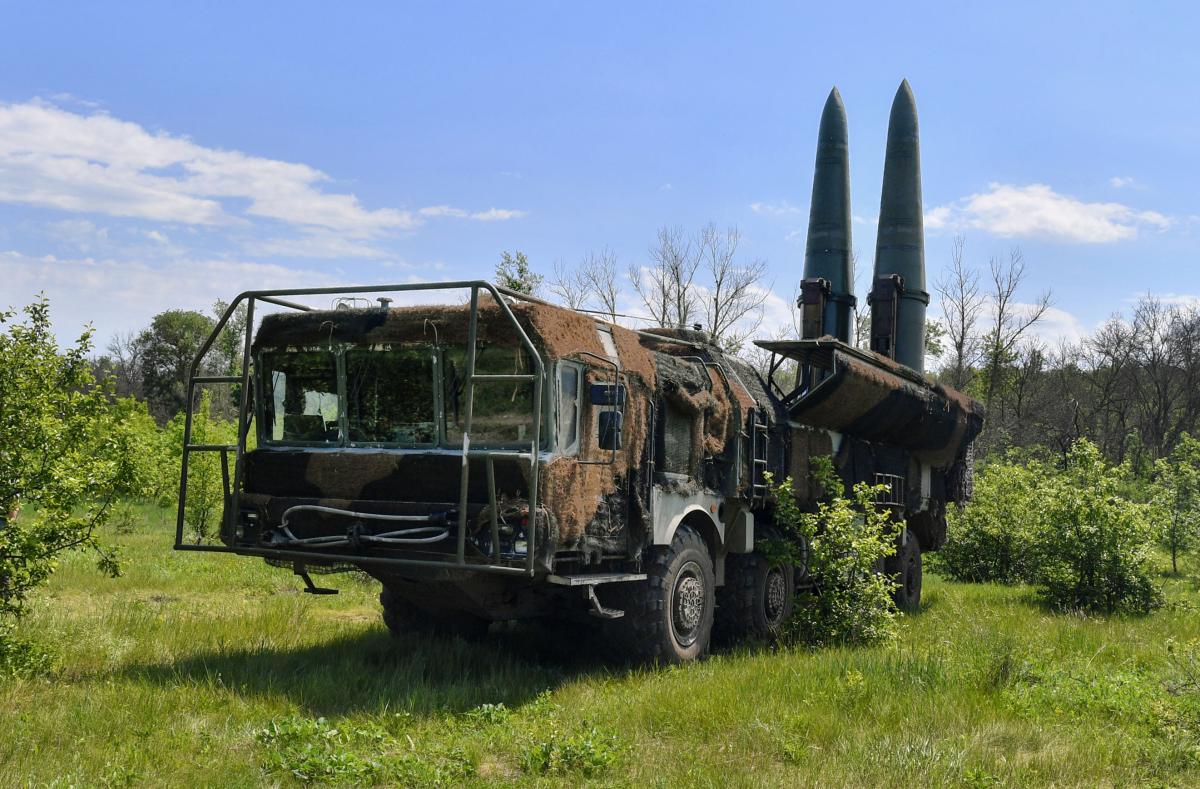Part 4 of 5: The clock is ticking
12. One of the two certainties of this war:
14. Russian literature on escalation management, boils down to: One, inflict pain. Two, promise more if the enemy does not submit, if they don't submit, inflict even more pain until they do. But Moscow’s generals cannot defeat the Ukrainian military in the field and therefore resort to terrorising Ukrainians civilians instead.
15. Russian fighting capability is being corroded by logistics complications. IMO, the fastest way to end this war is through a Ukrainian military victory or a negotiated settlement in which Kyiv has an even stronger hand (and on terms acceptable to Ukrainians).
17. Ukrainian officials just are expecting nothing good from the combination of Putin and his new man in-charge of the war in Ukraine, Gen. Sergei Vladimirovich Surovikin. As a former commander of Russian Forces in Syria, Surovikin, is nicknamed ‘general armageddon’ — "and he certainly earned it in the air campaign in Syria." The Russian Air Force is not able to achieve air superiority in Ukraine.
12. One of the two certainties of this war:
(a) The more Russia is defeated, the louder the chorus of voices grows advocating Ukraine negotiate the terms of its conditional surrender. Everyone from Elon Musk to Pope Francis has lately urged President Zelenskyy to enter into negotiations with Moscow. But the overwhelming majority of Ukrainians are against any ceasefire that entails giving their land to an invading force that they’re pushing farther back every day.
(b) In military operations, one of the most important principles is that of unity of command. This means that all forces should operate under a single commander who has the authority to direct these forces. The Russians then attempted to fix this situation in April 2022 but most commanders put in by Putin will get replaced. The flaws in Russia’s battlefield performance are more deeply rooted than bad Russian C4, and the reasons for poor battlefield leadership more than I can cover in 10 posts.
12. If Moscow were to use a single nuclear bomb, it would not stop an Ukrainian division — for Putin to stop an Ukrainian division, he would need to use 25 to 31 warheads.(a) US Army doctrine in 1977 called for 136 tactical nuclear weapons to defeat an attack by 7 Soviet divisions, including 31 warheads to be used against the lead attacking divison, all delivered within 1-2 hours. You can kill a lot of civilians with a single nuclear weapon but a single bomb does not stop an army. A prior study of a India-Pakistan nuclear exchange scenario, a 5 kiloton tactical nuclear weapon would destroy just 13 tanks, if they were dispersed.
(b) The purpose of using tactical nuclear weapons would be to try to terrify Ukraine and its backers into making concessions by raising the risk of Armageddon. Ukraine’s cause, however just, should not blind us to the appalling consequences of a nuclear war, even if the responsibility for starting such a war would inevitably lie with Putin.
14. Russian literature on escalation management, boils down to: One, inflict pain. Two, promise more if the enemy does not submit, if they don't submit, inflict even more pain until they do. But Moscow’s generals cannot defeat the Ukrainian military in the field and therefore resort to terrorising Ukrainians civilians instead.
15. Russian fighting capability is being corroded by logistics complications. IMO, the fastest way to end this war is through a Ukrainian military victory or a negotiated settlement in which Kyiv has an even stronger hand (and on terms acceptable to Ukrainians).
(a) Some have suggested that Putin may have incentive for nuclear attack, as so much is on the line, it’s hard to just walk away. Meanwhile, Moscow will continue this war under Gen. Surovikin and try to improve its position.
(b) Putin has addressed Russia's attacks on Ukrainian civilians & infrastructure. Putin’s flawed escalation ladder thinking is, as follows:
- Putin framed them (correctly or not) as punishment for Kerch & other alleged attacks
- Putin promised future Russian strikes would be "harsh" & "correspond to the level of threat posed" by new attacks.
16. The bottle neck is the training pipeline — it’s not just missiles or radars but the training pipeline size — in many Western countries, the military has shrunk so much, it’s pipeline is limited. It’s not easy for Ukraine to retain IADS personnel.…the IRIS-T deliveries started. Four systems is not enough, Germany should at least double that.
The Ukraine support tracker has been updated with data until October 3: Ukraine Support Tracker | Kiel Institute (ifw-kiel.de)
17. Ukrainian officials just are expecting nothing good from the combination of Putin and his new man in-charge of the war in Ukraine, Gen. Sergei Vladimirovich Surovikin. As a former commander of Russian Forces in Syria, Surovikin, is nicknamed ‘general armageddon’ — "and he certainly earned it in the air campaign in Syria." The Russian Air Force is not able to achieve air superiority in Ukraine.
(a) Gen. Surovikin is the 9th commander of Putin’s ‘Special Military Operations’, and is known as air force guy that was a butcher of civilians in Syria. Gen. Surovikin will have to prove himself to Putin either by holding onto some indefensible terrain in Kherson (across the Dnipro river), or attacking more civilian targets.
(b) Butchers like Surovikin are not going to come up with a tactical aviation plan or air tasking order that help the Russian Army win the battle of Kherson in Ukraine — which is a ground battle that requires logistics; which by the way, the Russian Army does not have anymore, as their crossing points across the Dnipro river are being hit by Ukrainian artillery.
Last edited:















